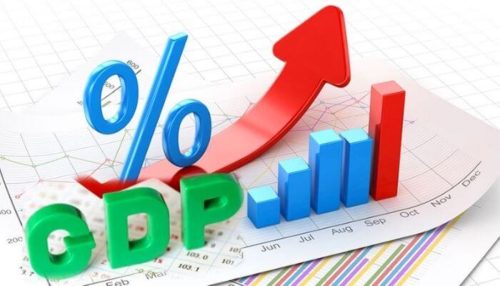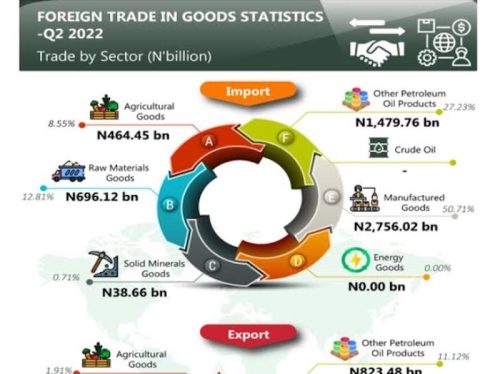
Opportunities and Challenges
Nigeria, often referred to as the “Giant of Africa,” is a nation rich in resources and potential. As the largest economy in Africa, Nigeria’s trade dynamics are critical to the continent’s economic health. This blog delves into the intricacies of trade in Nigeria, exploring its key trading partners, major exports and imports, and the challenges and opportunities that shape its trade landscape.
Key Trading Partners
Nigeria’s trade relationships span the globe, with key trading partners including China, India, the United States, the Netherlands, and the European Union. In 2022, Nigeria’s total trade was valued at $97.4 billion, with exports amounting to $53.6 billion and imports totaling $43.8 billion .
Major Exports
Nigeria’s economy is heavily reliant on oil and gas, which constitute the majority of its exports. In 2022, crude oil exports accounted for approximately $38.3 billion, making up 71.4% of Nigeria’s total exports . Other significant exports include liquefied natural gas (LNG) at $5.6 billion, and agricultural products such as cocoa ($900 million), rubber, and palm oil. In recent years, there has been a concerted effort to diversify exports to reduce dependence on oil, leading to increased focus on non-oil sectors like agriculture, mining, and manufacturing.

Major Imports
Nigeria’s major imports include machinery ($10.3 billion), vehicles ($4.9 billion), electronics ($3.2 billion), and refined petroleum products ($9.6 billion). The country also imports food products ($2.4 billion), pharmaceuticals, and chemical products . The reliance on imports for these essential goods underscores the need for improved local production and industrial capacity.
Opportunities in Nigerian Trade
Diversification of the Economy
One of the most significant opportunities for Nigeria is the diversification of its economy. By investing in agriculture, manufacturing, and technology, Nigeria can reduce its dependence on oil and create a more resilient economic foundation. This diversification can open new markets and create jobs, contributing to overall economic stability.
Technological Advancements
The adoption of technology in trade processes can streamline operations, reduce costs, and enhance efficiency. Digital platforms and e-commerce are growing in Nigeria, providing opportunities for businesses to reach global markets with ease. Furthermore, technological advancements in agriculture and manufacturing can increase productivity and competitiveness.
Regional Trade Agreements
Nigeria’s participation in regional trade agreements, such as the African Continental Free Trade Area (AfCFTA), presents significant opportunities for expanding intra-African trade. These agreements can facilitate the free movement of goods and services, reduce trade barriers, and foster economic integration across the continent.
Challenges in Nigerian Trade
Infrastructure Deficits
One of the most significant challenges to trade in Nigeria is inadequate infrastructure. Poor road networks, unreliable power supply, and limited port capacity hinder the efficient movement of goods and increase the cost of doing business. According to the World Bank, Nigeria needs to invest approximately $3 trillion in infrastructure by 2040 to meet its economic growth targets .
Regulatory and Bureaucratic Hurdles
Complex regulatory frameworks and bureaucratic inefficiencies can create obstacles for businesses engaged in trade. Streamlining regulations, improving transparency, and reducing red tape are essential for creating a more conducive environment for trade and investment.
Currency Volatility
Fluctuations in the value of the Nigerian naira can impact trade by increasing uncertainty and affecting the cost of imports and exports. Implementing sound monetary policies and fostering a stable economic environment are crucial for mitigating the effects of currency volatility.
Conclusion
Trade in Nigeria presents a landscape of immense opportunities and considerable challenges. By leveraging its natural resources, investing in economic diversification, and addressing infrastructure and regulatory challenges, Nigeria can enhance its trade potential and achieve sustainable economic growth. As the country continues to evolve, the focus on creating a more dynamic and resilient trade environment will be key to unlocking its full potential on the global stage.
Sources:
1. Nigeria Trade Statistics, 2022
2. Nigerian National Petroleum Corporation (NNPC) Reports, 2022
3. Nigeria’s National Bureau of Statistics (NBS), 2022
4. World Bank Infrastructure Investment Report, 2022
Tidots
Mettmaner str. 119 - 40882 Ratingen, Germany
+49-162-4195257
Quick Links
Newsletter
Get in touch about our new services, products and events



